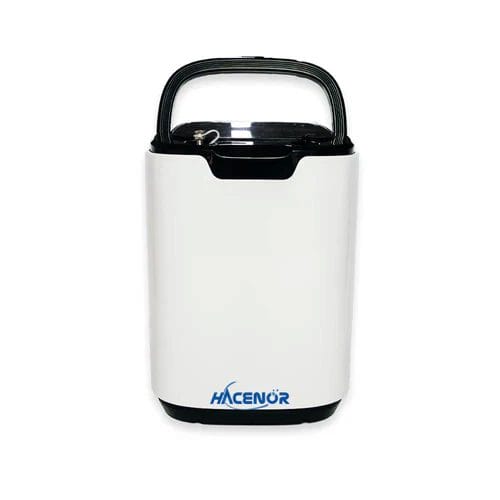[Last updated October 15, 2024]

Figuring out how to pay for assisted living can be a challenge for seniors who don’t have extensive financial resources. Since some types of insurance can help cover assisted living costs, people may wonder if their Medicare plan will pay for assisted living. Generally speaking, Medicare cannot pay for costs associated with assisted living. Here, we’ll break down the assisted living services and costs that are and aren’t covered by Medicare and why.
First, let’s define Medicare and assisted living. A firm understanding of these basics will help you see what is and isn’t covered by Medicare in assisted living and why.
Medicare, defined
Medicare is the health insurance program run by the U.S. government. It helps pay for medical services for people 65 and older and some individuals under 65 who have certain disabilities. Medicare’s health insurance plans help cover various medical services, including hospital visits, doctor appointments, prescription drugs, medical tests, and other medically necessary services. Medicare is specific about what it covers, so if an enrollee encounters a medical issue, it’s important to learn if the services or items needed are covered.
Assisted living definition
Assisted living is a type of housing for seniors who need some help with daily activities, like bathing, dressing, and meal preparation. The total number of residents in an assisted living community can range from under 20 to over 100 individuals, depending on the size of the facility. The environment of these facilities is intended to be homelike, so you’ll find multiple communal living room areas, a large dining room, outdoor courtyards, and individual living spaces that usually have private bathrooms and even kitchenettes.
The help that residents receive in assisted living communities includes assistance with typical activities of daily living, like bathing, getting dressed, walking, toileting, and feeding. The staff also handles other tasks, too, like meal preparation and cooking, cleaning the common areas and resident living spaces, and even resident transportation, depending on the facility.
Now that we’ve explained the basics of Medicare and assisted living, let’s dive into whether Medicare pays for this type of senior living and why or why not.
Does Medicare pay for assisted living?
Medicare does not cover rent or care services in assisted living facilities. It might seem confusing because Medicare pays for a host of services that older adults need, so why wouldn’t it pay for assisted living? Let’s discuss that next.
Why doesn’t Medicare pay for assisted living?
Medicare is health insurance that pays specifically for medical services. Medical care may include treatment of illnesses and injuries, wound care, medical assessments and prognoses, X-rays, and lab tests. It doesn’t pay for assisted living because that care is not considered medical. Medicare defines these types of services as custodial care, which is “non-skilled personal care, such as help with activities of daily living like bathing, dressing, eating, getting in or out of a bed or chair, moving around, and using the bathroom. It may also include the kind of health-related care that most people do themselves, like using eye drops.” Since this type of care is not considered medical, it does not meet Medicare’s coverage criteria.
Are there services in assisted living that Medicare may cover?
While Medicare does not pay for living at or receiving custodial care in assisted living, while living there, residents may encounter the need for some services that Medicare may cover temporarily. Just like a person who lives at home, an assisted living resident can still access services that are paid for by Medicare. If the service can be provided at the assisted living facility (such as physical therapy if a physical therapist visits the community to perform services), then the resident may be able to get those services at the community covered by Medicare.
These services are typically covered on a short-term basis only and must be deemed medically necessary by the resident’s health care provider. Some examples of these services are:
- Skilled nursing care: If a doctor orders skilled nursing services, such as wound care or medication administration, these may be covered, but only for a limited time.
- Physical, occupational, or speech therapy: These therapies may be covered if prescribed by a doctor and provided in the facility.
Medicare Advantage plans and assisted living coverage
Medicare Advantage (MA) plans are alternative health insurance plans to original Medicare. Instead of being offered by the federal government, private health insurance providers offer Medicare Advantage plans. These companies have to follow rules that the federal government sets, but they can create their own sets of coverage.
With that in mind, it’s possible that some personal care services (which include the custodial care that we mentioned earlier) might be covered. However, since Medicare Advantage plans vary not only by provider but also by geographic area, you would need to consult with your insurance provider to learn if any assisted living services are covered.
Understanding Medicare’s coverage limitations for assisted living can help seniors and their families make informed decisions. While Medicare does not pay for the care services or room and board in these facilities, some short-term medical services may be covered if prescribed by a doctor. Families may have other options for paying for assisted living, such as personal funds, loans, long-term care insurance, life insurance, and VA benefits. If you’re dually eligible for Medicaid and Medicare, you may be able to utilize Medicaid to help pay for some other costs. When considering assisted living, it’s important to assess your financial situation and payment options since Medicare does not cover this type of care.








